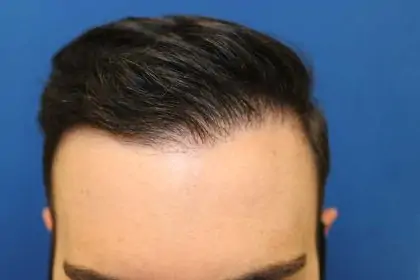Hair loss is a deeply personal experience that extends beyond the physical changes it brings. It can significantly impact an individual’s mental and emotional well-being, influencing self-esteem, body image, and overall confidence. In this blog post, we will explore the psychological effects of hair loss and delve into how hair replacement solutions can serve as a transformative tool, not just in restoring hair but in reclaiming a sense of self and confidence.
The Emotional Landscape of Hair Loss:
- Impact on Self-Esteem: One of the most immediate and profound effects of hair loss is its impact on self-esteem. Hair is often intricately tied to our perception of beauty and attractiveness. The loss of it can leave individuals feeling less confident and struggling with a diminished sense of self-worth.
- Body Image and Identity: Hair plays a vital role in shaping our identity and how we present ourselves to the world. Its absence can lead to a distorted body image and a sense of loss in terms of personal identity. Individuals may feel disconnected from their former selves, leading to a struggle in accepting the changes.
- Social Anxiety and Withdrawal: Hair loss can trigger social anxiety, with individuals often feeling self-conscious about their appearance. This anxiety may lead to social withdrawal as individuals avoid situations where they feel their hair loss will be noticeable, impacting relationships and overall quality of life.
- Depression and Emotional Distress: The emotional toll of hair loss can extend to more serious conditions such as depression and emotional distress. The constant worry about one’s appearance, combined with societal expectations, can contribute to a negative mindset that affects mental health.
Understanding the Role of Hair Replacement:
- Empowering Individuals Through Choice: Hair replacement solutions offer individuals the power to choose how they want to present themselves to the world. Whether opting for a wig, hairpiece, or a more permanent solution like a hair transplant, the ability to make choices about one’s appearance can be empowering and contribute to a sense of control.
- Restoring Confidence: Perhaps the most significant psychological benefit of hair replacement is the restoration of confidence. A well-fitted and natural-looking hair replacement system can provide a sense of normalcy, helping individuals regain confidence in their appearance and allowing them to move through the world with assurance.
- Enhancing Self-Image and Identity: Hair replacement goes beyond the physical act of restoring hair; it aids in rebuilding self-image and personal identity. Individuals can once again recognize themselves in the mirror, fostering a positive relationship with their own reflection and promoting a healthier sense of identity.
- Reducing Social Anxiety: Hair replacement solutions can alleviate the social anxiety often associated with hair loss. Knowing that one’s appearance is restored can encourage individuals to engage more confidently in social situations, rebuilding connections and reducing the emotional burden of isolation.
The Journey to Self-Acceptance:
- Seeking Professional Support: Acknowledging the emotional impact of hair loss is a crucial first step. Seeking support from mental health professionals or support groups can provide a safe space for individuals to express their feelings, share experiences, and receive guidance on coping strategies.
- Education and Awareness: Understanding the available options for hair replacement is essential in making informed decisions. By educating themselves about the various solutions, individuals can choose the path that aligns with their preferences, lifestyle, and long-term goals.
- Setting Realistic Expectations: While hair replacement can be transformative, it’s important to set realistic expectations. Every individual’s experience is unique, and factors such as the chosen solution, the type of hair loss, and personal preferences can influence the outcome. Open communication with hair replacement professionals helps in establishing realistic expectations.
- Building a Support System: The journey of dealing with hair loss and undergoing hair replacement is made more manageable with a strong support system. Family, friends, or support groups can offer encouragement, understanding, and a sense of community, reinforcing the idea that individuals are not alone in their experiences.
Changing the Narrative:
- Celebrating Diversity and Individuality: A fundamental shift in societal attitudes towards beauty and appearance is essential. Celebrating diversity and embracing individuality can contribute to a more inclusive definition of beauty, reducing the stigma associated with hair loss and empowering individuals to embrace their unique qualities.
- Promoting Mental Health Awareness: Initiatives to promote mental health awareness, particularly concerning the psychological impact of hair loss, are crucial. Education campaigns, support groups, and accessible resources can break down stigmas and encourage open conversations about the emotional challenges associated with hair loss.
Conclusion:
The psychological impact of hair loss is a multifaceted journey that requires understanding, empathy, and support. Hair replacement solutions emerge not just as a physical remedy but as a powerful tool for restoring confidence, rebuilding identity, and empowering individuals to navigate life with renewed self-assurance. By fostering a culture of acceptance, celebrating diversity, and promoting mental health awareness, we can contribute to changing the narrative surrounding hair loss and empower individuals to embrace their unique beauty and worth.

